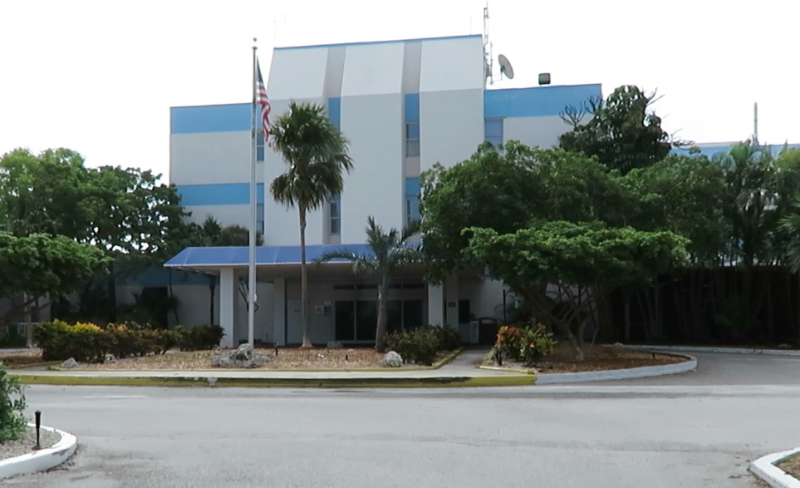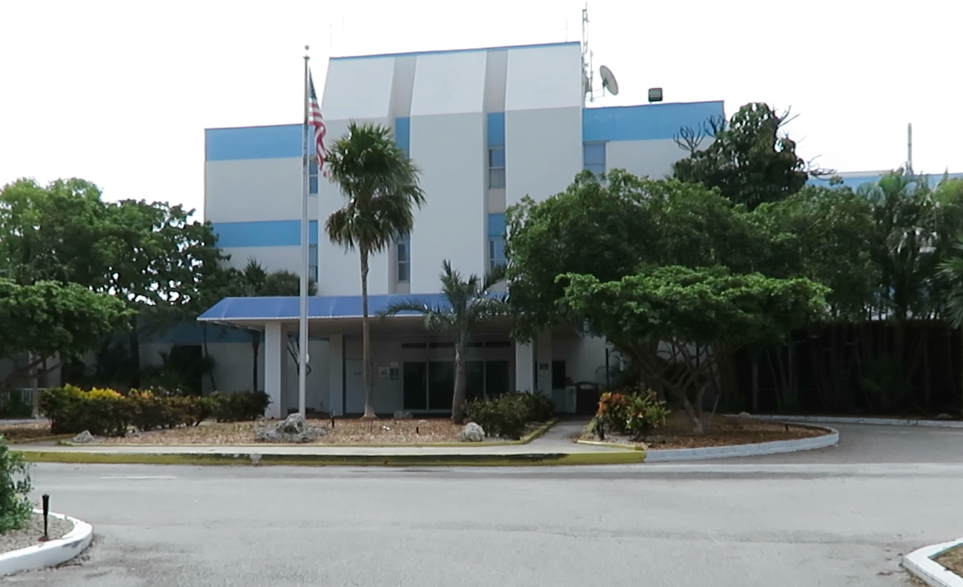Health Care in Key West: Knowing the Unknowable

by Martha K. Huggins, Ph.D……..
I never thought that I would quote former United States Secretary of Defense, Donald “Rummy” Rumsfeld. But I have been driven to his epistemology of “know-ability” by my frustrating search for the “Primary Care Clinic” funded to the tune of a half-million dollars annually by the Lower Florida Keys Hospital District (LFKHD). Donald Rumsfeld, the master of using power to deliver ‘strategized confusion,’ explained on February 12, 2002, that US government’s knowledge about Iraq’s passing of ‘weapons of mass destruction’ to terrorists, spoke to what US intelligence services could know and could not know. Rumsfeld explained his epistemology of knowledge:
“As we know, there are known knowns…things we know we know. We also know there are known unknowns…we know there are…things we do not [fully] know. But there are also unknown unknowns – the ones we don’t know.” (Italics added)
My previous article for The Blue Paper (12/23/2016), on lower keys health and hospital care, focused on possible lease un-compliance by the Lower Keys Hospital District (LFKHD) and/or Community Health Systems (CHS) in their implementing of the lease’s indigent care stipulations: Are these two entities complying with the 1999 lease that requires provision of health care for all residents including indigents by means of a regularly operating primary care clinic?
I felt that I had cracked open what Donald Rumsfeld dubs the “known unknown”: Eureka! The “Primary Care Clinic” that serves Lower Keys indigents is located at dePoo Hospital. I had discovered information that I knew I had not been previously able to identify—the “known unknown”—namely, an (unnamed ) Lower Keys “Primary Care Clinic,” as a line-item in the budget of the Lower Florida Keys Hospital District. The Hospital District’s (LFKHD) annual financial statements that are subjected annually to an audit by Oropeza and Parks, a Key West CPA firm, indicate that a “Primary Care Clinic” for indigents receives $500K annually from the Hospital District. The Oropeza and Parks firm’s audit is presumably then submitted to Monroe County government and/or directly to Florida’s State Comptroller. But none of these official entities seem to have noticed that an unspecified and unnamed “Primary Care Clinic” is getting a half-million bucks annually from the Lower Florida Keys Hospital District Board.
[wds id=”4″]
Does the CPA firm that audits the Lower Florida Keys Hospital District’s annual financial reports approach its task as if the Hospital District’s half-million dollar payment to an unnamed “Primary Care Clinic” is something that it ‘knows it knows’– a “known known”? Any criminologist or forensic accountant would surely retort that a budgetary line item without a specifically traceable end-user is an invitation for corruption. But then we know from my last article that the Hospital District’s $500K payment to a “Primary Care Clinic” is sent quarterly by the Lower Florida Keys Hospital District to the Keys Physician-Hospital Alliance, d/b/a KPHA.
But you won’t find this entity in Florida’s corporate registry; its “fictitious name” is shorthand for the Lower Florida Keys Physician/Hospital Organization, Inc. (Lic. No. N95000002403), whose President and registered agent is Dr. Robin Lockwood. In this instance, how is one to move from the state of ignorance implied by Defense Secretary Rumsfeld’s “known unknowns”—things we know that we do not fully know–to the desired state of “known knowns”—things we know that we know?
Seeking information about KPHA—I’ll call this entity by that name since those I’ve spoken with who work there or affiliate with it, use that name—I called Tomi Galin, Senior Vice President of Corporate Communications, Marketing and Public Affairs at the Tennessee-based Community Health Systems (CHS), which took over as the profit-making corporation running the two Key West hospitals. Who better to refine my knowledge than an executive at CHS? So I sent her an email, requesting among other things: (1) the name of the “Primary Care Clinic” that ultimately receives the Lower Florida Keys Hospital District’s $500K annually; (2) an explanation of how such funds are used—who/what is the end-use of the Hospital District funds earmarked for a Lower Keys “Primary Care Clinic.” The email including these and other questions was dutifully answered by Ms. Galin’s Executive Assistant, Gina Sellers.
Taking the latter question first, I learned from MS. Sellers that the unnamed “Primary Care Clinic” that the Lower Florida Keys Hospital District says its funds, in fact, only gets only “up to” one-quarter of the Hospital District’s designated $500K annual “Tithe.” The specific CHS response was that,“Up to $125k annually goes to pay for Physician Salaries at the Primary Care Clinic to provide care for patients that meet Indigent care requirements. The remainder of the funds [$375,000 or more] are allocated to Physician Specialists that provide care for the indigent patients.”
I also learned from CHS that I was not going to get from its representative the name of the “Primary Care Clinic” that provides indigent health care in a regularly operating clinic setting for the lower keys. To my question: “Which Primary Care Clinic receives $500K annually from the Lower Florida Keys Hospital District?” CHS responded: “The primary care clinic that was established and continues to be funded by the hospital and the Hospital District Board as outlined by the purchase agreement.” Curious about the role of KPHA (Keys Physician-Hospital Alliance) in transferring the Hospital District’s “Primary Care Clinic” monies to the “appropriate” end-users, I asked, who decides how the Hospital District’s $500K should be used? One might assume that CHS, which is both a manager of the Lower Keys Medical Center and recipient of its profits and losses, has a “say” in this matter. And indeed CHS representative informed me that, “Funds from the Hospital District Board are used to pay for physician services – primary and specialty care – for indigent patients who qualify for services through the primary care clinic program.”
I forgot to ask CHS what KPHA is and does. However, I learned from the Web that KPHA is a PHO–not a delicious Vietnamese noodle soup, but rather–in health care “industry-talk”— a “Physician Hospital Organization.” Sometimes described as “a management service organization in which the partners are physicians and hospitals,…the PHO organization contracts for physician and hospital services.”[i] In the case of KPHA, one of its duties includes billing and receiving money from the Lower Florida Keys Hospital District and then allocating these fiscal resources as needed (or directed?). It can be said that a Physician Hospital Organization, such as KPHA, is vehicle for farming out– ‘off-shoring’– some of the burdensome administrative tasks that could bog down a for-profit hospital’s primary mission–reaping profits for stockholders by reducing administrative costs, keeping hospital care ‘efficient’ (read: costs reined in, and thus lean services), and distributing money and healthcare services that will best reduce potential profit losses from indigent or under-insured health and hospital care.
Critics of such aspects of managed care argue that these practices may create pressure to do more with less: less time per patient, less costly medicines, and fewer diagnostic tests and treatments. Monetary incentives are often used to affect physician behavior, and may include rewarding physicians who practice medicine frugally by offering financial rewards, such as bonuses, for those who provide the most cost-efficient care.[ii]
A lawsuit brought against Health Management Associates (HMA), subsequently re-branded, CHS, for allegedly illegal management practices in its hospitals across a number of US states, points to the ways that managed care can be operationalized to make hospital profits from people’s ill-health. Among the charges against HMA/CHS were the following:
- engaging in corporation-wide practices “developed and implemented…and procedures at all HMA hospitals, to pressure Emergency Room (ER) physicians to admit more patients; [This included];
- setting target ER inpatient admission rates — including [a minimum] admission rate of 50% for Medicare-eligible patients — designed solely to boost admission;
- requiring medical staff to order a computer-generated series of diagnostic tests (testing protocols) on each ER patient, even when some or all of the tests are medically unnecessary;
- conditioning the continued employment of ER physicians and medical directors on their success in increasing the number of ER inpatient admissions and adherence to the testing protocols;
- threatening to terminate and actually terminating hospital CEOs who would not coerce physicians to admit more patients;
- paying bonuses to ER physicians who meet corporate benchmarks designed to increase ER inpatient admissions;
- instructing physicians to keep running tests on patients until the doctors found a justification for admitting them.
The Blue Paper reported last week that Community Health Systems said, “No,’ in response to a Lower Florida Keys Hospital District’s suggestion that CHS renegotiate its management lease on our Lower Keys Medical Center. While I may never achieve former Defense Secretary Donald Rumsfeld’s highest level of knowledge—‘knowing the knowns’… I feel certain that I now know many of the seeming ‘unknowns.’ I will keep working to eliminate the known unknowns… about CHS and the Hospital district. And I swear that I will never settle for accepting that we must accept the “unknown unknowns” about matters that should be of considerable concern to Key West residents and tourists.
Next week, let’s look at what the board game “Monopoly” can teach us about CHS, the Hospital District, and the Lower Keys for-profit hospitals. We must mark time as the Lower Keys Hospital District—which has been contacted several times using a Florida open records request to open its books to Editor Naja Girard and myself.
~~~~~
[i] Mosby’s Medical Dictionary, 9th edition. © 2009, Elsevier.
[ii] “Ethics in Medicine.” 1998. University of Washington School of Medicine. (https://depts.washington.edu/bioethx/topics/manag.html)




CHS clearly runs hospitals not to heal, but to make as much money as it can. The list of charges against them is utterly damning. And you can see them covering up their shady non-clinic. I don’t know how they can get people to work there–doctors and nurses should be ashamed to be associated with them. Perhaps there is no alternative for them as the corpoRATocracy has taken over all health care.
Martha, your labors here are like cleaning up a monster latrine. Thank you for your sacrifice.
Yes a sticky mess. Thanks for reading and providing thoughts, Rick. Martha
Nice investigative work once again!
JW. Thank you